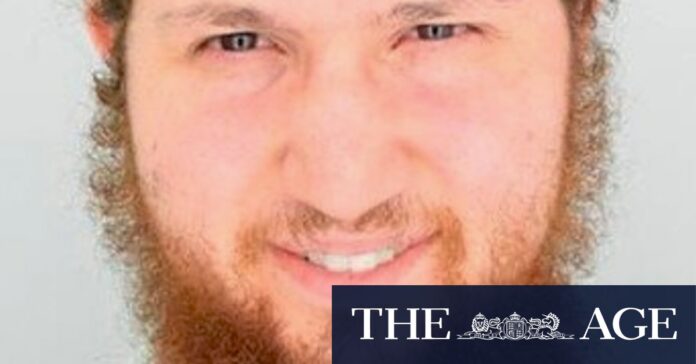[ad_1]
Four days after his transactions on the exchange, Eisenberg posted on Twitter: “I was involved with a team that operated a highly profitable trading strategy last week.” He also said he believed “all of our actions were legal open market actions, using the protocol as designed”.
In a deal with the Mango DAO, Eisenberg agreed to return $US67 million of what he’d gotten from depositors in exchange for them agreeing to release him from legal claims and not pursuing his prosecution.

FTX co-founder Sam Bankman-Fried was sentenced in the same court last month to 25 years in prison for orchestrating a multibillion-dollar schemeCredit: AP
Eisenberg left Puerto Rico, where he was living, the day after his Mango trades and flew to Israel. When he returned to Puerto Rico on December 26, 2022, US agents arrested him. He’s been in jail ever since, as a judge ruled he poses a risk of fleeing before trial. He was indicted on charges of commodities fraud, commodities manipulation and wire fraud. He’s pleaded not guilty.
The US Securities and Exchange Commission and the Commodity Futures Trading Commission also sued Eisenberg, as did Mango Labs, which claimed his deal with depositors was unenforceable and made under duress. All of those civil lawsuits are on hold pending the criminal trial before US District Judge Arun Subramanian.
In screening potential jurors, Subramanian dismissed one woman who said she had “very negative views of crypto.” The judge has scheduled opening statements for Tuesday.
Jurors will have to digest a complex set of facts about crypto trading, market manipulation and decentralised finance protocol.
Anonymous accounts
Prosecutors allege Eisenberg deceptively used two anonymous accounts at Mango markets to buy and sell himself futures contracts. Those contracts were based on the relative value of Mango’s token, known as MNGO, and a stablecoin called USDC. The price of the futures sales was set by computer programs, known as oracles, that looked at exchange rates on various crypto platforms.
On the afternoon of October 11, 2022, Eisenberg funded each of his anonymous accounts with $US5 million in USDC, prosecutors allege. He used one account to sell MNGO futures contracts, and another to buy them. He then bought a large number of MNGO tokens, which boosted their value relative to USDC, sending the futures contracts up by 1300 per cent.
Eisenberg then exploited a feature of the exchange that allowed participants to “borrow” against their holdings, withdrawing $US110 million in cryptocurrencies from Mango Markets, but he had “no intention of repaying them”, the US charges. The price of MNGO futures contracts immediately collapsed.
Loading
A lawyer for Eisenberg and a spokesman for federal prosecutors in the Southern District of New York declined to comment.
At a bail hearing in Puerto Rico in December 2022, Eisenberg’s lawyer at the time said his client was a “very bright” crypto trader who was a math major at Yeshiva University.
“He specialises in game theory and these cryptocurrency markets are a lot about that,” said Manuel San Juan Demartino. Eisenberg, who lived in Puerto Rico, flew to Israel the day after the alleged theft, a prosecutor said. Eisenberg, a US citizen, also got Israeli citizenship before returning to Puerto Rico, the prosecutor said.
[ad_2]
Source link


